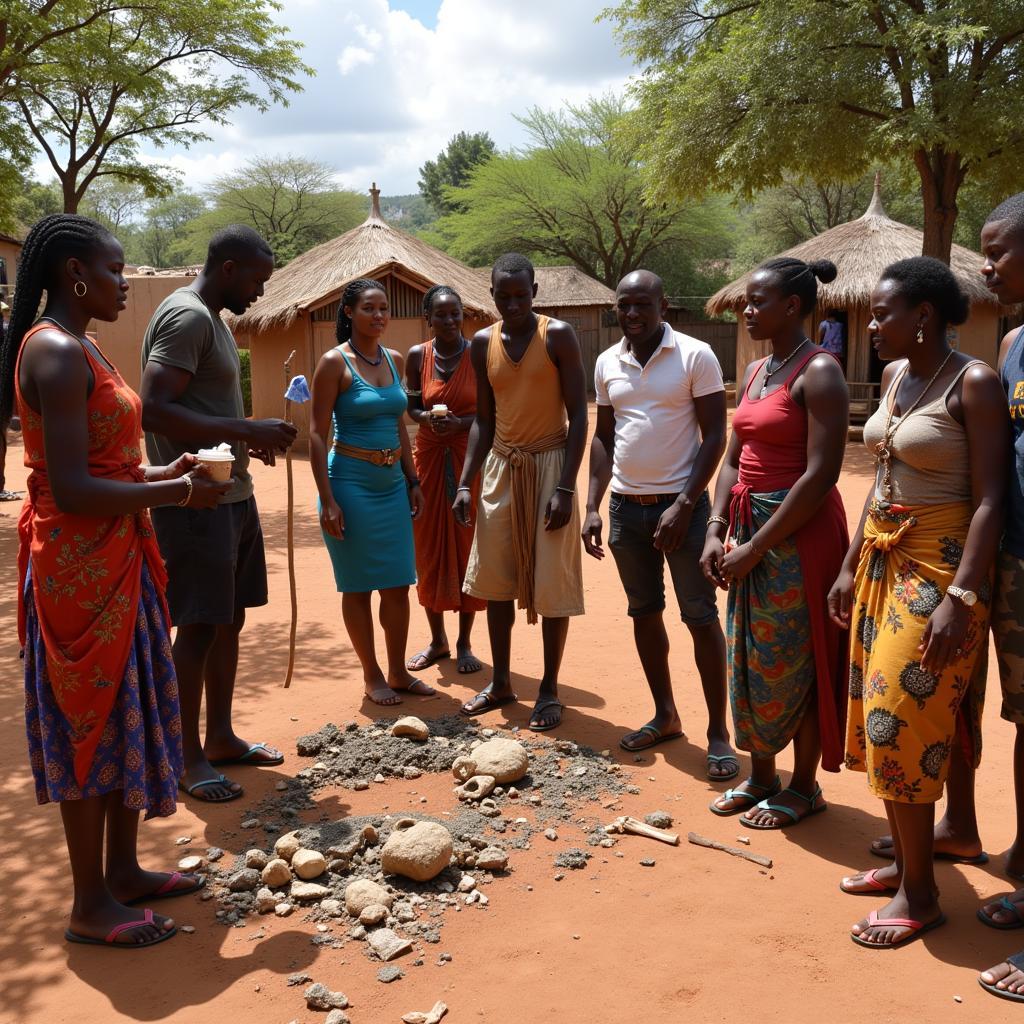Understanding the African Crisis Response Force
The African Crisis Response Force (ACRF) is a crucial initiative aimed at addressing conflicts and crises across the African continent. This article delves into the ACRF, exploring its history, structure, capabilities, and challenges, while also examining its role in maintaining peace and security in Africa.
The Genesis and Evolution of the ACRF
The idea of a continental force capable of rapidly responding to crises was born out of the devastating Rwandan genocide in 1994. The international community’s delayed response highlighted the urgent need for Africa to develop its own capacity to manage conflicts. The African Union (AU) took up this challenge, leading to the establishment of the ACRF in 2003. Initially conceived as a standby force, the ACRF has evolved over time, refining its doctrines, training procedures, and operational frameworks. The ACRF aims to provide the AU with a readily deployable force to prevent, manage, and resolve conflicts, contributing to a more peaceful and secure Africa.
The ACRF is not intended to replace national armies, but rather to complement them. It acts as a tool for the AU to intervene in situations where national governments are unable or unwilling to protect their own populations. This allows for rapid and effective response to crises ranging from natural disasters to armed conflicts.
Structure and Capabilities of the African Crisis Response Force
The ACRF is structured around five regional brigades, each responsible for a specific geographic area of the continent. This decentralized approach allows for faster mobilization and deployment of troops within their respective regions. These brigades are composed of military, police, and civilian components, enabling the ACRF to address a wide range of crisis scenarios. The force is designed to be self-sufficient for the initial 30 days of deployment, highlighting its capacity for rapid response.
The capabilities of the ACRF extend beyond traditional peacekeeping operations. It is trained and equipped to undertake a variety of missions, including:
- Peace enforcement: Intervening in active conflicts to enforce peace agreements.
- Humanitarian assistance: Providing aid and relief to populations affected by natural disasters or conflict.
- Disaster relief: Responding to natural calamities such as floods, droughts, and earthquakes.
- Protection of civilians: Safeguarding vulnerable populations from violence and threats.
- Post-conflict reconstruction: Supporting the rebuilding and stabilization of societies after conflict.
“The ACRF represents a significant step forward in Africa’s ability to manage its own security challenges,” says Dr. Chiamaka Okeke, a prominent security analyst specializing in African affairs. “Its multi-dimensional structure allows for a comprehensive approach to crisis response.”
Challenges Facing the African Crisis Response Force
Despite its potential, the ACRF faces several challenges:
- Funding: Securing adequate and sustainable funding for operations remains a significant hurdle.
- Logistics: Deploying troops and equipment across vast distances in Africa presents logistical complexities.
- Political will: Ensuring the political commitment of member states to contribute troops and resources is crucial.
- Capacity building: Continuous training and development of personnel are essential for maintaining operational effectiveness.
The issue of African countries in debt distress further complicates funding for crucial initiatives like the ACRF. The allocation of limited resources to debt servicing can hinder investments in peace and security.
The ACRF’s Role in Maintaining Peace and Security
The ACRF has played a role in several peacekeeping operations across the continent. While its full deployment has been limited, its presence has often served as a deterrent and a catalyst for dialogue. The force has also contributed to humanitarian efforts, providing assistance to populations affected by natural disasters and conflict.
“The ACRF is not a panacea for all of Africa’s security challenges,” explains Professor Adebayo Adewale, a renowned expert on African peace and security. “However, it represents a vital instrument for promoting stability and preventing further conflicts.” The harrowing realities of African holocaust Rwanda underscore the importance of proactive measures to prevent and address such atrocities. The ACRF, with its focus on rapid response, can play a vital role in mitigating future crises.
What is the main goal of the African Crisis Response Force?
The ACRF’s primary goal is to enable the African Union to rapidly and effectively respond to crises across the continent, promoting peace and security.
How is the ACRF structured?
The ACRF is organized into five regional brigades, each covering a specific geographical zone.
What are the key capabilities of the ACRF?
The ACRF is trained and equipped for diverse missions, including peace enforcement, humanitarian assistance, disaster relief, protection of civilians, and post-conflict reconstruction.
The disturbing news of African being sold as slave in Libya highlights the urgent need for robust responses to human rights violations. The ACRF, with its mandate to protect civilians, can play a critical role in addressing such situations. Incidents like the African girl kidnapped at car further emphasize the need for increased security measures and the importance of a rapid response force like the ACRF. Even seemingly unrelated issues such as African elephant diseases can indirectly impact security and stability, highlighting the interconnectedness of various challenges facing the continent.
Conclusion
The African Crisis Response Force represents a significant milestone in Africa’s journey towards self-reliance in managing its own security. While the ACRF continues to face various challenges, its potential to contribute to peace and stability on the continent remains undeniable. Continued investment in its development and operationalization is essential for ensuring its effectiveness in addressing the complex security landscape of Africa. The ACRF stands as a symbol of African unity and a testament to the continent’s commitment to building a more peaceful and secure future.
When in need of assistance, please contact us via Phone: +255768904061, Email: [email protected] or visit our office at Mbarali DC Mawindi, Kangaga, Tanzania. Our customer service team is available 24/7.


